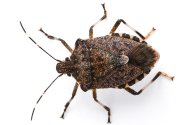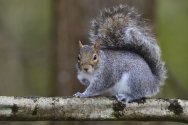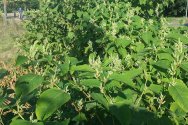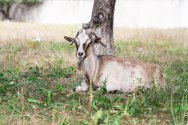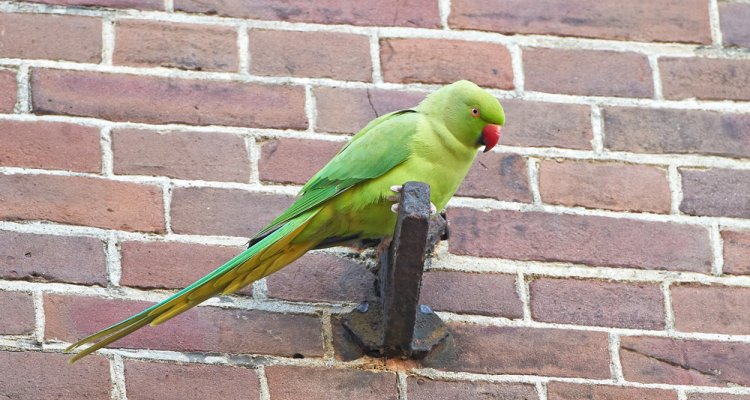
Dossier
Exotic species in the Netherlands
Exotic species, also known as alien or introduced species, are animals, plants, fungi or micro-organisms imported through human activity into an area where they do not originally occur, but where they proceed to thrive. Species which were introduced to the Netherlands before the year 1500, such as the rabbit, the pheasant and the mute swan, do not count and are considered indigenous.
Exotic species are sometimes introduced deliberately. An example is the multicoloured Asian ladybird, released in Europe 20 years ago to combat aphids. Pheasants and fallow deer were once released as hunting game. And every year hundreds of turtles and pond perch are released into Dutch watercourses when their owners have had enough of them.
But a lot of species get introduced by accident. Sometimes pets or ornamental animals escape from captivity, as did the Egyptian goose, the Pallas’s squirrel and the Italian crested newt. Marine creatures such as the Chinese mitten crab are brought in with ballast water from ships; the tiger mosquito hitches a ride on tropical plants. And since a canal was dug between the Rhine and Danube 20 years ago, fish species from the Danube watershed, such as the round goby and the money goby, have been able to reach our waters.
There is another category of newcomers that we do not count as exotic: species such as the great egret, whose habitat is shifting as a result of climate change. They are counted in the same category as the lynx, wildcat, wolf and perhaps the golden jackal: animals that settle here of their own accord.
Species monitoring through eDNA
With the help of environmental DNA (eDNA), researchers can demonstrate the presence of animal species, for example based on water samples.
Publications
-
Een kwart van de zoetwaterdieren wordt met uitsterven bedreigd
-
Data underlying the publication: Identifying and Quantifying the Abundance of Economically Important Palms in Tropical Moist Forest Using UAV Imagery
-
Stressvrij omgaan met varkens
-
Data underlying the publication: Selective Electrochemical Desorption of Fermentation-derived n-Caproate from Activated Carbon
-
Marine growth sampling tool evaluation : evaluation of the performance of an ROV-mounted tool for sampling marine growth on Offshore energy structures
Den Helder: Wageningen Marine Research (Wageningen Marine Research report C068/24A) -
Verkenning effecten landbouwinnovaties : Potentieel van landbouwinnovaties om emissies van ammoniak en broeikasgassen naar de lucht en verliezen van nutriënten naar het water te verlagen
Wageningen: Wageningen Universiteit (Rapport / Wageningen Universiteit 2024.159) -
Eco-System-City: Heat reduction in Alphen aan den Rijn: measurements for proof
-
Eco-System-City: Water, Green and Urban Cooling for Utrecht
-
In the face of competition, imperfect knowledge can lead to sustainable exploitation of a shared resource
-
Environmental impact assessment of fish feed for aquaponic systems to introduce higher phosphorus and potassium in value-added fish sludge
Aquaculture (2025), Volume: 599 - ISSN 0044-8486

